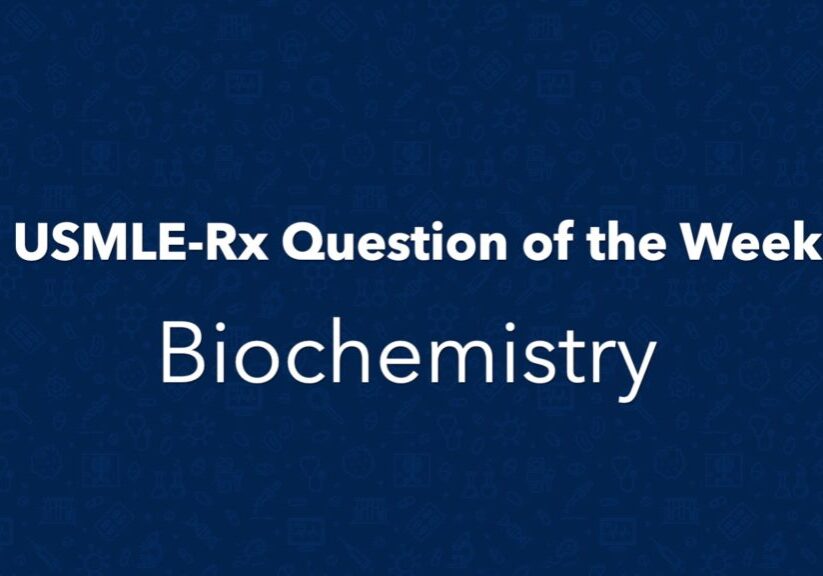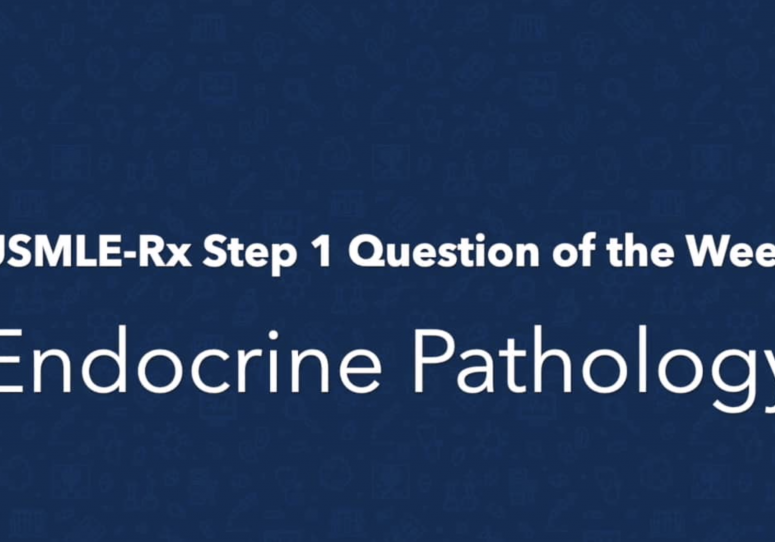Check out today’s Step 1 Qmax Question Challenge.
Know the answer? Post it below! Don’t forget to check back for an update with the correct answer and explanation (we’ll post it in the comments section below).
A 25-year-old man presents to the clinic because of fever, lymphadenopathy, and a macular rash over his trunk and extremities that extends to his palms and soles. Three weeks ago, he noticed a painless “bump” on his penis that self-resolved. Serologic testing is positive for antibodies against a nonspecific antigen, and further specific testing confirms the diagnosis.
Where is the endogenous, non-specific antigen targeted by this patient’s immune response found?
A. Bile phospholipids
B. Inner mitochondrial membrane
C. Myelin
D. RBC membranes
E. Surfactant
———————–
Want to know the ‘bottom line?’ Purchase a USMLE-Rx Subscription and get many more features, more questions, and passages from First Aid, including images, references, and other facts relevant to this question.
This practice question is an actual question from the USMLE-Rx Step 1 Qmax test bank. For more USMLE Step 1 prep, subscribe to our First Aid Step 1 Flash Facts and First Aid Step 1 Express Videos video series. Score the best deal on all three products as a bundle with USMLE-Rx 360 Step 1.





B .
B
cardiolipin is hidden there
B
RPR titre
B
Cardiolipin, the main antigen used in RPR as diagnostic test for syphilis, is a component derived from the inner mitochondrial membrane.
The correct answer is B. The patient’s symptoms are classic for secondary, or disseminated, syphilis due to infection with Treponema pallidum. Testing for syphilis includes both nonspecific and treponemal-specific serologic tests. Nonspecific serologic testing for syphilis identifies the presence of serum antibodies that bind cardiolipin. These antibodies typically are not present in healthy individuals but can be detected in patients with syphilis, as well as numerous other conditions, for example, antiphospholipid antibody syndrome (and thus the presence of these antibodies is considered a nonspecific marker for syphilitic infection). On the other hand, treponemal-specific serologic testing identifies serum antibodies specifically targeting treponemal antigens.
Cardiolipin (diphosphatidylglycerol) is a phospholipid found in the inner mitochondrial membrane of mammalian cells, as well as in the membranes of bacteria. Cardiolipin derived from bovine heart is the substance used in testing for serologic reactivity in syphilis.
A is not correct. Although phospholipids are components of bile (specifically phosphatidylcholine), these are not the antigenic targets of nonspecific treponemal serologic testing.
C is not correct. Phosphatidylcholine is a phospholipid found in the myelin sheaths of neurons; however, this is not the target of anticardiolipin antibodies.
D is not correct. RBC membranes are also composed of phospholipids, although not specifically cardiolipin. Antibodies against the group antigens of RBCs can cause hemolysis.
E is not correct. Surfactant is composed of dipalmitoylphosphatidylcholine, another phospholipid. This is not the substance targeted in this condition.